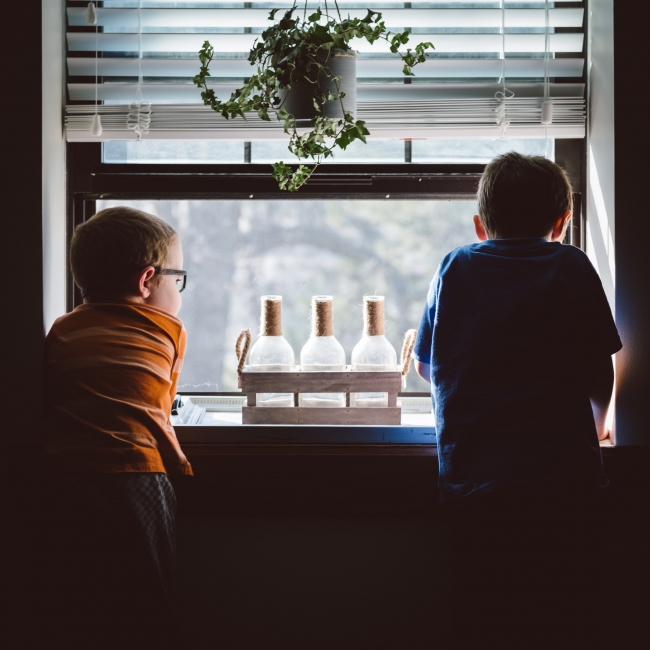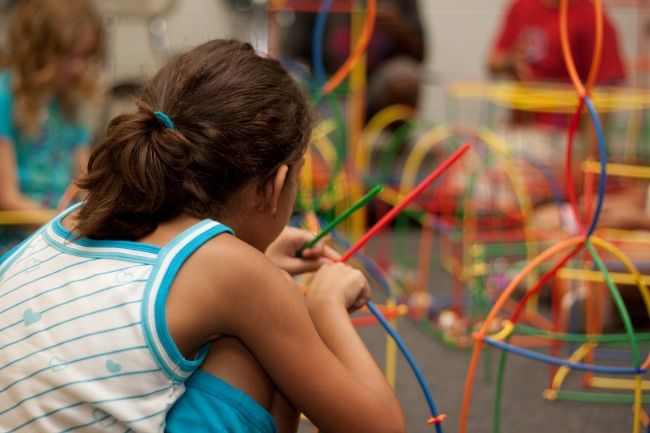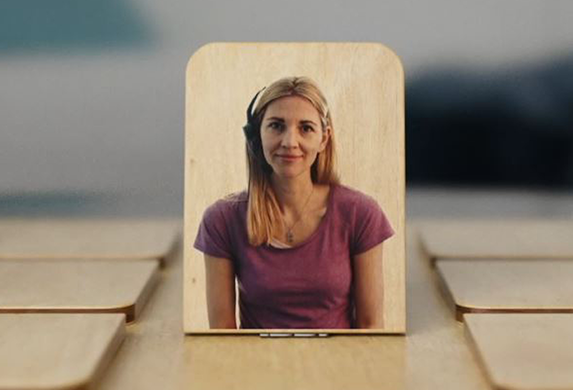A Child Who Recants (Takes Back) a Disclosure of Abuse Was Probably Not Abused
Cymraeg
What protective adults need to know
Many children who are sexually abused don't tell anyone about it and many keep their secret all their lives. People who sexually abuse children are more likely to be people we know, and could well be people we care about; more than 8 out of 10 children who are sexually abused know the person who abused them. They are family members or friends, neighbours or babysitters - many hold responsible positions in society. The closer the relationship between the child and the person carrying out the abuse, the less likely the child is to talk about it.
Children often show us rather than tell us that something is worrying or upsetting them so being aware of thewarning signs is vital. However, children may give vague hints that something is happening. Their information may not be clear and they may not have the words to explain what is happening to them. The way adults respond to this is vital to ensuring the child's safety.
Watch this short video to learn how best to respond.
WHAT TO DO IF YOU SUSPECT ABUSE
Respond with care and urgency
If you think a child is trying to tell you about a sexually abusive situation, respond promptly and with care. The police and children's social care have joint working arrangements for responding to suspected child sexual abuse. They are experienced in this work and will deal sensitively with the child and family.
Believe the child
If a child trusts you enough to tell you about abuse, you must remember that they rarely lie about such things. Although it may be hard to believe that someone we trust or care about is capable of sexually abusing a child, it's highly unlikely that a child would deliberately make false accusations about adult-like sexual behaviours.
The pressures on the child to keep silent are enormous. It takes tremendous courage to talk about abuse. A child's claim that sexual abuse did not happen (when it actually did), or taking back a disclosure of abuse are common. Sometimes the child's account of what happened changes or evolves over time. This is a common pattern for disclosure and should not invalidate their story.
Be supportive
It is important that they feel supported - don't dismiss their claims or put them off talking about it.
Stay calm
If they are talking to you about it, don't get angry or upset. Stay calm and steady. If you get angry the child may think you are going to punish them - this will play into the hands of the person who sexually abused the child, who might have warned the child not to tell. If the child fears you will become upset or distressed they are less likely to disclose in order to protect you emotionally.
Be caring
Make sure the child knows you love them and that they have done nothing wrong - and keep telling them. The child will need to see that adults believe them and they are doing all they can to protect them. Make sure the child knows they were right to talk about it and that you are glad they came to you.
Face the problem
When the abuse is known, adults must face the problem honestly, protect the child at all costs and place responsibility appropriately with the person who committed the abuse.
Re-establish safety
Do what is necessary to protect the child from further harm. Put into place a family safety plan.
Get help
Get help from professionals who can help guide you towards safety and healing. Information on sources of help can be found on our get help / further support and useful links pages.
Do not despair
Children can and do recover from child sexual abuse. It is incredibly difficult to hear that someone you love has been hurt in such a way but help to recover is available.
Every year thousands of people discover that someone in their family or circle of friends has abused a child. These children and their families need help to recover from their experiences.
Our actions can prevent abuse, protect children, and help those abused to recover.
It can also lead to the person who sexually abused a child being held accountable and taking responsibility for their abuse. By getting effective treatment, they might eventually become a safer member of our community.
And if the person who sexually abused a child is someone close to us, we need to get support for ourselves too.
If you know about abuse and don't tell anyone, the person who offended may well continue to abuse, the child will continue to suffer, and more children may become victims. But you can change that.
If you see warning signs and don't know what to do, seek advice and help. The confidentialStop It Now! helpline supports thousands of people each year to keep children safe.
What the child may be feeling
Fear
Be afraid that the person who abused them will reject them; harm them or those they love.
Be scared that no one will believe them.
Anxious about what will happen next.
Feel confused and conflicted
Feel unsure about whom they can trust.
Feels protective and/or loving toward the person who abused them.
Regrets having told (may even take back the disclosure).
Contradictory feelings
When sexual abuse takes place within families, the pain we experience can include conflicting and confusing emotions. We may feel extreme anguish over what was done to the child, while still feeling love and concern for the family member who committed the abuse.
Guilt and shame
Believes they are responsible for the abuse.
Feels guilt about upsetting the family by telling.
Feels ashamed if they experienced positive physical sensations.
Hope and relief
Is relieved that the burden of secrecy has been lifted.
Feels hopeful that the abuse will now stop.
Sexual abuse or incest within the family
When a child is abused by another family member, each family member is affected. Typically, the help of outside specialists is needed to address the emotional toll on the family and to assist the healing process of each individual.
What protective parents and caregivers may be feeling
Anger
Rage toward the person who committed the abuse for harming the child, betraying our trust, deceiving and manipulating us.
Anger at the child for not telling sooner.
Guilt
Self-blame for not having seen what was happening in time to protect the child (even when the person responsible for the abuse did all that they could to keep it hidden).
Guilt over loving or caring about the person who abused the child.
Fear
Afraid about how the abuse will impact on the child.
Fearful about the family's future and the consequences for the person who abused the child.
Loneliness and loss
Grieving for the loss of the life we had, or thought we had, before we knew about the abuse.
Feeling an extreme sense of isolation.
Finding support for ourselves
As protective parents and caregivers, we also need support. Connecting with whom we can share our feelings with will help us cope with the trauma and the challenges we face. Useful contacts can be found on our get help / further support pages.
Intervening with the person who has sexually abused
The person who has sexually abused a child needs to be held accountable and get specialised professional help. Statutory services such as the police or children's social care are often best placed to take the next steps. Should you choose not to contact them, and if it is safe, consider speaking directly to the person who has offended.
Some points to keep in mind when speaking with someone who has or may have abused:
- Explore the situation in a non-accusatory, non-confrontational way. This may help to reduce the person's defensiveness.
- Be specific about the behaviours that concern you and state your reactions to them.
- Ask simple and direct questions.
- Let the person know that there is help available; individuals can and have gone on to live abuse-free lives by first taking responsibility for the harm they've done, facing the consequences of their actions, and committing themselves to change and to specialised treatment.
- If you feel it, let the person know that you care about them. Loving support can be an important factor in getting someone to take responsibility, face consequences and get treatment.
- Conversations generally need to happen more than once.
- Find an ally for yourself whom you can turn to for support.
- Encourage them to call the Stop It Now! helpline on 0808 1000 900.
When sexual abuse is exposed the person who offended may experience any of the following:
Shame and remorse
Feels extreme self-hatred; may want to self-harm
Is remorseful over the harm they have done
Fear
Afraid of legal consequences
Fears loss of family and loved ones, home, reputation, status and job
Concerned about being viewed contemptuously by others
If the person who abused is a child or teenager, they may fear being taken from home or losing friendships
Anger
Feels angry at the child for telling
Denial
Feels impulse to deny, justify or minimise the harm
Relief and hope
Relieved that the burden of the secret has been lifted
Hopeful that they will get help for a problem they have struggled with secretly over time
Helping yourself
Learning that a child has been abused can be traumatic. It's important to get help for yourself to help you cope with the emotions, challenges and decisions you face.
This may be the time to turn to a friend, someone you trust, counsellor or therapist for emotional support. The more able you are to cope, the more you can help your child and family. You can find other organisations that might be able to help on our useful links page.
<Previous video
WANT TO KNOW MORE?
If you want to know more how to prevent child sexual abuse, you can watch the rest of our short films .
If you're worried about how an adult or young person you know behaves around children, you can get confidential support from theStop It Now! helpline: 0808 1000 900.If you're not ready to speak to someone yet, you can use our live chat or send a secure message.

Reporting abuse
If a child discloses abuse to you, it is important to understand your options in how to proceed. Visit our page to find out more about the organisations available to offer support and guidance.
Learn More

Services for someone who has been sexually abused
After a child has disclosed abuse, it is important to understand that there are services available to help and support with the effects and impact of abuse on the child and the family. Visit our page to learn more.
Learn More

books to share with children
Books can help as a help to open up channels of communication around acceptable and unacceptable behaviours. Visit our suggested list to find out more about which books can help.
Learn More

Stop it now! Helpline
For confidential advice on how to respond to a child disclosing abuse and if you're concerned about an adult causing harm, call our helpline or us our secure messaging service to speak to an operator.
Learn More
A Child Who Recants (Takes Back) a Disclosure of Abuse Was Probably Not Abused
Source: https://www.parentsprotect.co.uk/if-a-child-tells-you-about-abuse.htm
Post a Comment for "A Child Who Recants (Takes Back) a Disclosure of Abuse Was Probably Not Abused"